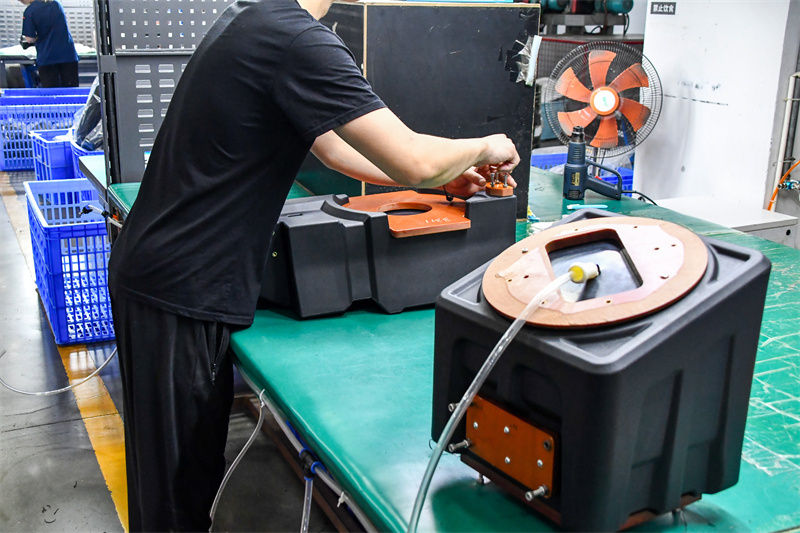How to Judge Density Precision in the Rotational Molding Process
 Apr 14,2024
Apr 14,2024

How to Judge Density Precision in the Rotational Molding Process
Rotational molding is a common molding process used to manufacture a variety of plastic products. Density accuracy is an important indicator to determine the structural integrity, mechanical properties, and overall performance of rotomolded products. Density refers to the mass of a substance per unit volume, usually obtained by dividing mass by volume.
The density accuracy during the rotational molding process can be evaluated through the following aspects.
1. Material selection
Choosing plastic materials suitable for rotational molding processing is an important factor in ensuring density accuracy. Different resins have different density values, which directly impact the density of the final product. It is essential to choose a material that meets the specific requirements of the application and desired density precision.
2. Process control
During the rotational molding process, controlling processing parameters (such as temperature, pressure, etc.) has a great impact on density accuracy. It is necessary to reasonably adjust the processing parameters according to the melt rheological properties of the material and product requirements to ensure good fluidity and filling properties to obtain higher density accuracy.
3. Rotational Molding Machine
The performance and stability of rotational molding equipment also have an impact on density accuracy. The quality of the equipment directly affects the temperature, pressure control and molding effect during processing. Therefore, choosing the appropriate rotational molder and ensuring the normal operation and maintenance of the equipment are crucial to ensuring density accuracy.
4. Product testing
During the rotational molding process, the density accuracy can be evaluated through the measured density of the product. The measured density can be calculated by mass weighing and dimensional measurement. By comparing with the design requirements, it can be judged whether the density accuracy during the rotational molding process meets the requirements.

In order to more accurately evaluate the density accuracy, the following measures can also be taken in rotational molding.
- Molding process optimization
Through experiments and practice, the process parameters in rotational molding are continuously optimized to achieve higher density accuracy. For example, parameters such as melt temperature and pressurization time can be adjusted to optimize the filling process of the product so that the material flows more uniformly, thereby improving density accuracy.
- Temperature control
In the process of rotational molding, temperature control is the key. It is necessary to ensure that the heating temperature is uniform so that the material melts quickly during the heating process, thereby making the density of the molded object uniform.
- Pressure control
In rotational molding processing, the control of pressurization time and pressure is also very important. Proper pressurization time and pressure can ensure uniform filling of materials, thereby improving the density accuracy of molded objects.
In general, the density accuracy during rotational molding can be judged through material selection, process control, processing equipment and product testing. By reasonably optimizing process parameters, controlling heating temperature and pressure, selecting suitable materials, and conducting actual product testing, the density accuracy of rotational molding can be improved and the quality requirements of the product can be met.
 Tel: 0086-13632687993
Tel: 0086-13632687993  Email: roto@lightvenus.com
Email: roto@lightvenus.com

 Home
Home The Unique Features of Rotomolded Plastic Speaker Enclosures
The Unique Features of Rotomolded Plastic Speaker Enclosures  You May Also Like
You May Also Like



 Tel
Tel
 Email
Email
 Address
Address








